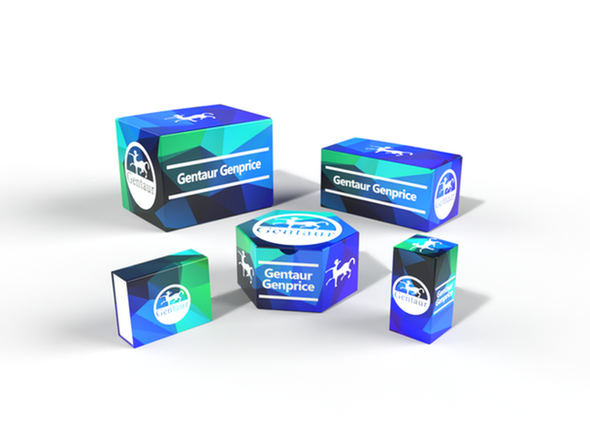740
Rabbit Adenosine receptor A1 (ADORA1) ELISA Kit | AE24019RB
- SKU:
- 740-AE24019RB
- Availability:
- Usually ships in 5 working days
Description
Rabbit Adenosine receptor A1 (ADORA1) ELISA Kit | AE24019RB | Gentaur UK, US & Europe Distribution
Species Reactivity: Rabbit (Oryctolagus cuniculus)
Abbreviation: ADORA1
Alternative Name: RDC7; OTTHUMP00000039091
Application: ELISA
Range: 0.78-50 ng/mL
Sensitivity: 0.35 ng/mL
Intra-Assay: ≤6.5%
Inter-Assay: ≤7.9%
Recovery: 0, 97
Sample Type: Serum, Plasma, Other biological fluids
Detection Method: Sandwich
Analysis Method : Quantitive
Test Principale: This assay employs a two-site sandwich ELISA to quantitate ADORA1 in samples. An antibody specific for ADORA1 has been pre-coated onto a microplate. Standards and samples are pipetted into the wells and anyADORA1 present is bound by the immobilized antibody. After removing any unbound substances, a biotin-conjugated antibody specific for ADORA1 is added to the wells. After washing, Streptavidin conjugated Horseradish Peroxidase (HRP) is added to the wells. Following a wash to remove any unbound avidin-enzyme reagent, a substrate solution is added to the wells and color develops in proportion to the amount of ADORA1 bound in the initial step. The color development is stopped and the intensity of the color is measured.
Product Overview: The receptor is an adenosine receptor that belongs to the G-protein coupled receptor 1 family. There are 3 types of adenosine receptors, each with a specific pattern of ligand binding and tissue distribution, and together they regulate a diverse set of physiologic functions. The type A1 receptors inhibit adenylyl cyclase, and play a role in the fertilization process. Animal studies also suggest a role for A1 receptors in kidney function and ethanol intoxication. Transcript variants with alternative splicing in the 5' UTR have been found for this gene. Activation of the adenosine A1 receptor by an agonist causes binding of Gi1/2/3 or Go protein. Binding of Gi1/2/3 causes an inhibition of adenylate cyclase and therefore a decrease in the cAMP concentration.
Stability: The stability of ELISA kit is determined by the loss rate of activity. The loss rate of this kit is less than 5% within the expiration date under appropriate storage condition. The loss rate was determined by accelerated thermal degradation test. Keep the kit at 37°C for 4 and 7 days, and compare O.D.values of the kit kept at 37°C with that of at recommended temperature. (referring from China Biological Products Standard, which was calculated by the Arrhenius equation. For ELISA kit, 4 days storage at 37°C can be considered as 6 months at 2 - 8°C, which means 7 days at 37°C equaling 12 months at 2 - 8°C) .






